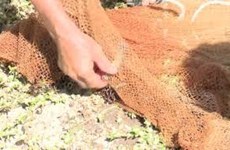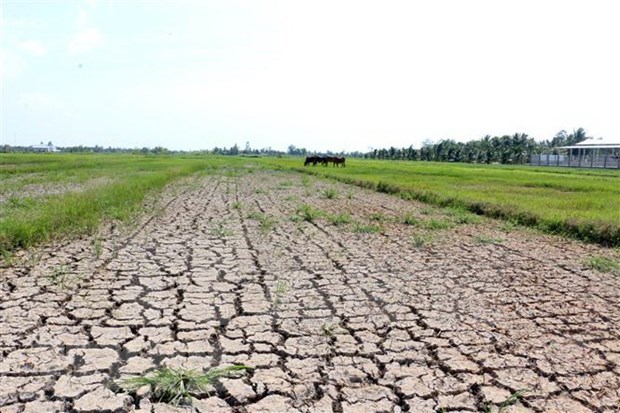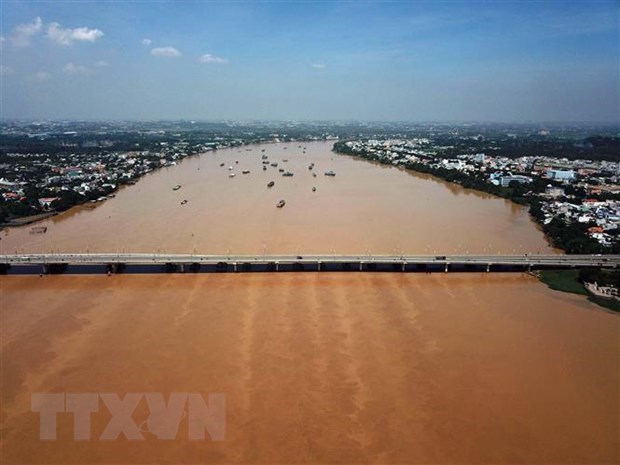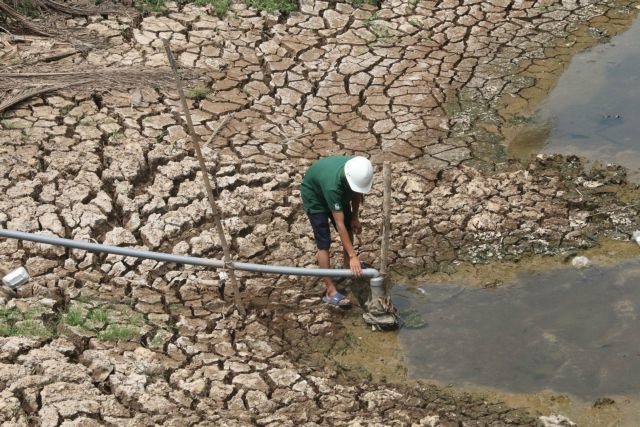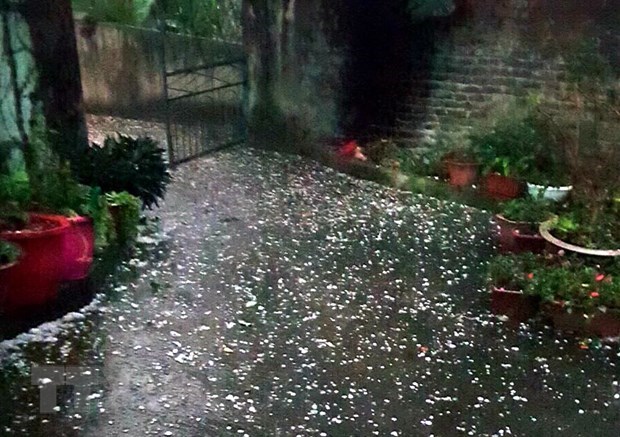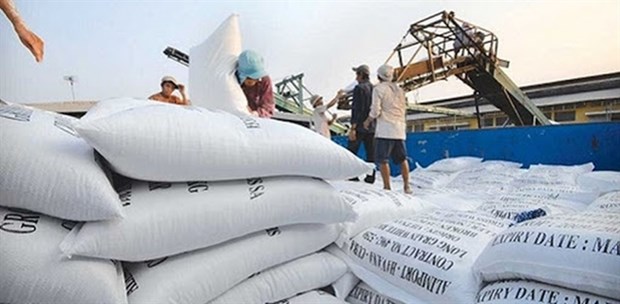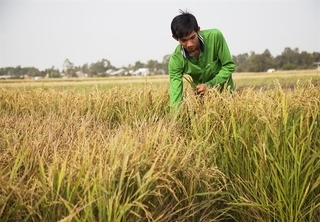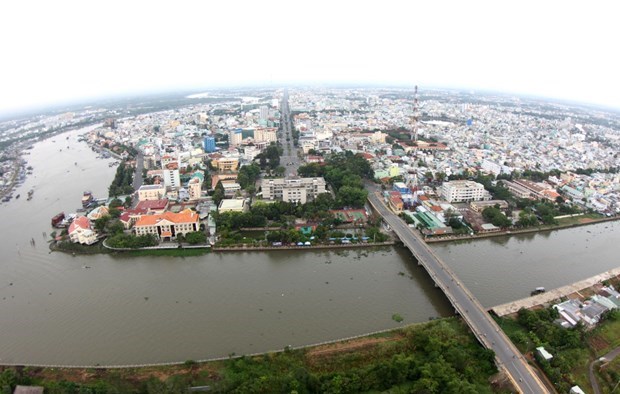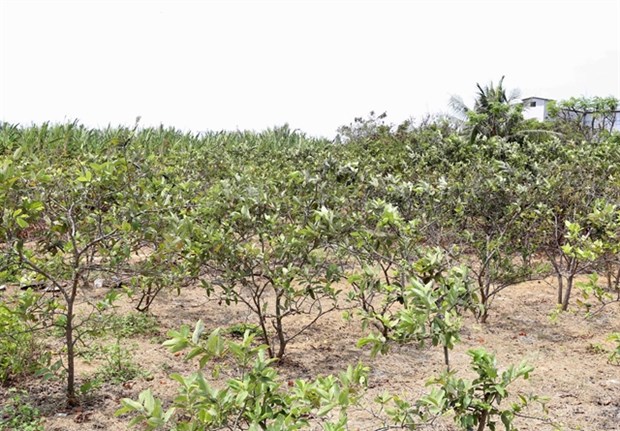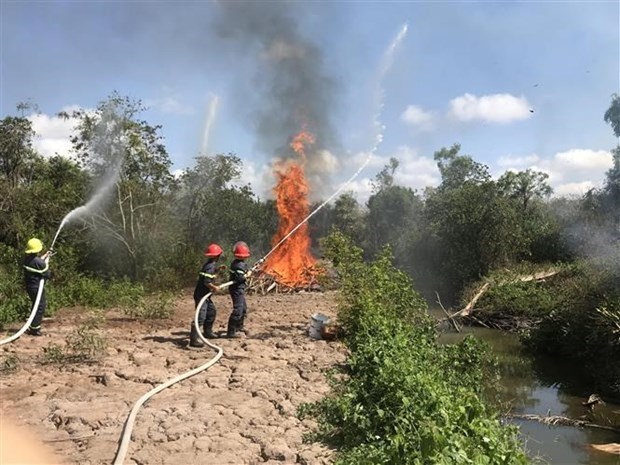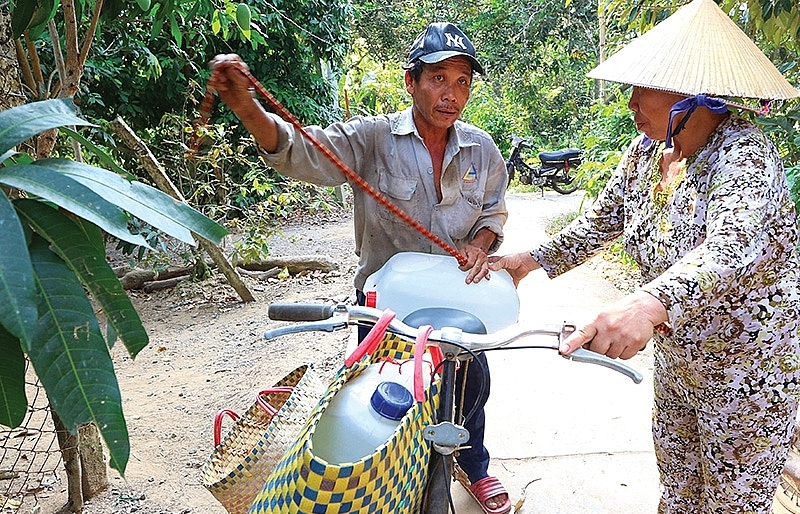- © Copyright of Vietnamnet Global.
- Tel: 024 3772 7988 Fax: (024) 37722734
- Email: evnn@vietnamnet.vn
Mekong Delta
Update news Mekong Delta
Kon Tum's river depleted as hydropower plants store water
 Hundreds of hectares of crops are withering as Dak Snghe River in Kon Ray district in Kon Tum province is being blocked by two hydropower plants.
Hundreds of hectares of crops are withering as Dak Snghe River in Kon Ray district in Kon Tum province is being blocked by two hydropower plants.
Soc Trang taps efficient farming models to beat climate change
 Farmers in the Mekong Delta province of Soc Trang have adopted many new farming models to adapt to climate change, which has helped them cope with the severe saltwater intrusion.
Farmers in the Mekong Delta province of Soc Trang have adopted many new farming models to adapt to climate change, which has helped them cope with the severe saltwater intrusion.
Saline intrusion in Mekong Delta likely to linger on
 Saline intrusion in the Mekong Delta will likely remain at a high level until the end of April or early May, before gradually declining, according to the National Centre for Hydro-meteorological Forecasting.
Saline intrusion in the Mekong Delta will likely remain at a high level until the end of April or early May, before gradually declining, according to the National Centre for Hydro-meteorological Forecasting.
Mekong Delta farmers switch to other crops in response to climate change
 More farmers in the Mekong Delta have restructured their crop cultivation to adapt to the effects of climate change.
More farmers in the Mekong Delta have restructured their crop cultivation to adapt to the effects of climate change.
Ministry proposes exempting charges for granting rights to exploit water resources
 Minister of Natural Resources and Environment Tran Hong Ha has proposed exempting charges on businesses for granting rights to exploit water resources for half a year, estimated at over $25 million, or for a year.
Minister of Natural Resources and Environment Tran Hong Ha has proposed exempting charges on businesses for granting rights to exploit water resources for half a year, estimated at over $25 million, or for a year.
Drought and salt water in Vietnam will be under control by 2030
 Nguyen Van Tinh, director general of the Department of Water Resources, speaks about Prime Minister Nguyen Xuan Phuc’s decision to grant VND500 billion to control salt water intrusion in eight Mekong Delta provinces
Nguyen Van Tinh, director general of the Department of Water Resources, speaks about Prime Minister Nguyen Xuan Phuc’s decision to grant VND500 billion to control salt water intrusion in eight Mekong Delta provinces
Should Mekong Delta have many small reservoirs or a few large ones?
 About 95,600 households in Mekong Delta face freshwater shortage because of drought and saline intrusion.
About 95,600 households in Mekong Delta face freshwater shortage because of drought and saline intrusion.
11 minor earthquakes occur in Vietnam so far this year
 Eleven minor earthquakes have occurred in Vietnam since the beginning of this year, according to the Standing Office of the Central Steering Committee for Natural Disaster Prevention and Control.
Eleven minor earthquakes have occurred in Vietnam since the beginning of this year, according to the Standing Office of the Central Steering Committee for Natural Disaster Prevention and Control.
Five provinces under emergency conditions due to saltwater intrusion receive funds from ministry
 The Ministry of Natural Resources and Environment has allocated VND800 million (nearly US$34,000) to five provinces which have declared an emergency due to saltwater intrusion.
The Ministry of Natural Resources and Environment has allocated VND800 million (nearly US$34,000) to five provinces which have declared an emergency due to saltwater intrusion.
Should water be transferred from east to west to save the Mekong Delta?
 Experts believe that it is necessary to think of measures to lead water to the Mekong Delta through a transmission network to save the area from severe drought and saline intrusion.
Experts believe that it is necessary to think of measures to lead water to the Mekong Delta through a transmission network to save the area from severe drought and saline intrusion.
Mekong Delta provinces want to build reservoirs to store freshwater
 Prime Minister Nguyen Xuan Phuc recently had a working session with localities declaring an emergency because of drought and saline intrusion in Mekong Delta, including Long An, Tien Giang, Ben Tre, Kien Giang and Ca Mau.
Prime Minister Nguyen Xuan Phuc recently had a working session with localities declaring an emergency because of drought and saline intrusion in Mekong Delta, including Long An, Tien Giang, Ben Tre, Kien Giang and Ca Mau.
Ministry of Industry and Trade proposes resuming rice exports
The Ministry of Industry and Trade (MoIT) has proposed resuming rice exports from April, with a volume of 400,000 tonnes, after it has compiled reports on production, domestic consumption and exports to submit to the Prime Minister.
Mekong Delta’s “start-up farmer” in search of organic rice
 Graduating from the Mekong Delta’s prestigious Can Tho University, 24-year-old Pham Thanh Vu still refers himself as a farmer in the truest sense of the word.
Graduating from the Mekong Delta’s prestigious Can Tho University, 24-year-old Pham Thanh Vu still refers himself as a farmer in the truest sense of the word.
Can Tho to become first smart city in Mekong Delta by 2025
 Can Tho, the most populated city in the Mekong Delta region, has achieved outstanding results in developing a project to build a smart city after nearly two years of implementation.
Can Tho, the most populated city in the Mekong Delta region, has achieved outstanding results in developing a project to build a smart city after nearly two years of implementation.
Mekong Delta shrimp prices fall as COVID-19 hits demand
 Shrimp prices have plummeted in the Mekong Delta since global demand has been hit severely by the COVID-19 pandemic.
Shrimp prices have plummeted in the Mekong Delta since global demand has been hit severely by the COVID-19 pandemic.
Mekong Delta rice farmers earn high income from rice straw
 Rice farmers in the Mekong Delta are earning higher incomes from selling rice straw left over from the harvested 2019 – 20 winter-spring rice crop.
Rice farmers in the Mekong Delta are earning higher incomes from selling rice straw left over from the harvested 2019 – 20 winter-spring rice crop.
Severe drought, saline intrusion can be predicted months in advance: expert
 Nguyen Huu Thien, an independent expert on the Mekong Delta, said he warned of severe drought and saline intrusion in mid-2019 after observing the flood season and the salty-fresh water boundary of the river.
Nguyen Huu Thien, an independent expert on the Mekong Delta, said he warned of severe drought and saline intrusion in mid-2019 after observing the flood season and the salty-fresh water boundary of the river.
Saltwater intrusion affects Mekong Delta’s fruit cultivation
 Saltwater intrusion has affected many fruit growing areas in the Mekong Delta as local farmers struggle to secure irrigation water for their orchards.
Saltwater intrusion has affected many fruit growing areas in the Mekong Delta as local farmers struggle to secure irrigation water for their orchards.
Hau Giang raises fire danger level to the highest
 The Mekong Delta province of Hau Giang on March 23 raised the fire danger level in the locality from “very high” (level 4) to “extreme” (level 5) due to long-lasting heat and low humidity in local forests.
The Mekong Delta province of Hau Giang on March 23 raised the fire danger level in the locality from “very high” (level 4) to “extreme” (level 5) due to long-lasting heat and low humidity in local forests.
Mekong farmers’ livelihoods in peril
 Vietnam is taking steps to ensure the country’s food security amidst heavy drought and saline intrusion in the Mekong Delta region.
Vietnam is taking steps to ensure the country’s food security amidst heavy drought and saline intrusion in the Mekong Delta region.

